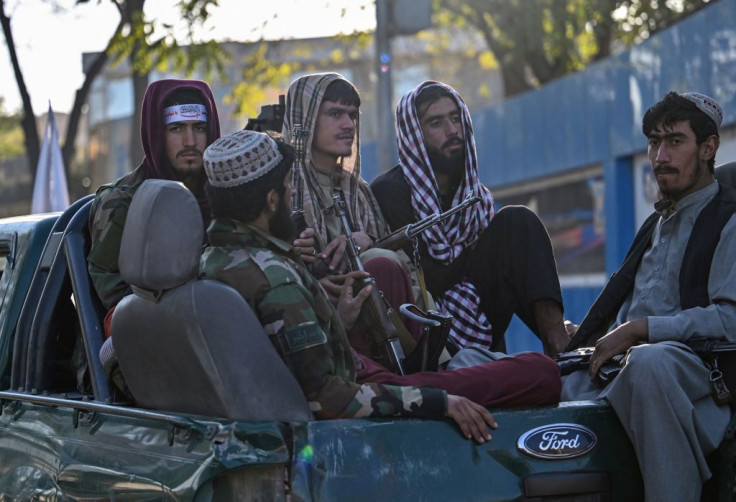The two-year-old Afghan boy named Navid, who sustained severe injuries from August's chaotic foreign troop withdrawal from Afghanistan, has endured another week of uncertainty despite repeated reassurances of aid from British civil servants almost four months after the brutal attack.
Navid was left paralyzed in August when a suicide bomber killed 183 people at Kabul Airport during the departure of Western troops on Aug. 26 from Afghanistan following the Taliban takeover, according to the Daily Mail.
While his parents and nine-year-old sister escaped the chaos unscathed, the two-year-old was hit by razor-like shrapnel and sustained appalling injuries to his head and back.
"As we waited in the crowd at Abbey Gate, we were warned of the possibility of a terrorist attack," Navid's father said. "We were not more than a few meters away when there was a big explosion on our left.
The patriarch added they had to flee via an open canal, which was filled with sewage, rubbish, and barbed wires. The family would only realize that Navid's clothes were already soaked with blood after a stranger pulled them out of the drainage ditch.
A British diplomat in Washington DC would then learn of Navid's plight on Aug. 27 and proceeded to help by raising the case with the Foreign Office. On the same day, Great Ormond Street in London agreed to assist if the youngster was brought to the UK.
However, delaying Foreign Office bureaucrats denied Navid life-changing surgery.
On Sunday last week, the Government vowed it would be urgently looking into this case. However, it took a Foreign Office official about five days to contact the family to ask for information that had already been given months ago.
"We are urgently looking into this case and will be contacting the family," a Government spokesperson said.
The Foreign Office offered reassurances that they would work on evacuating Navid to Britain. At this time, the child and his family remain at risk from the Taliban in Kabul.
"The glacial pace of this process is disappointing," Dr. Zuzanna Olszewska of the University of Oxford said. She has offered medical assistance to the family.
Briefing the UN Human Rights Council, Nada Al-Nashif reported that while fighting in Afghanistan has receded since the Taliban regained control in August, local civilians remain at risk of conflict as the Islamic State Khorasan Province, threatening the most basic of human rights.
She added various armed groups are still carrying out lethal attacks to defend their camps.
“How the de facto authorities – indeed, and the international community - address the drastic economic and humanitarian crises in the country will determine Afghans’ enjoyment of human rights, now and into the future," she continued.
"They will mark the difference between potential lives of dignity and well-being – or accelerating deprivation, injustice and tragic loss of life.”

© 2025 Latin Times. All rights reserved. Do not reproduce without permission.





